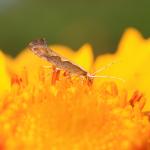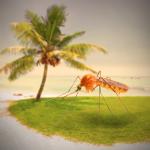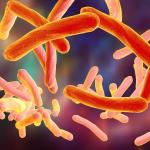Environmental contamination with heavy metals is often the result of various types of industrial processes. Because heavy metals can be dangerous to humans and other wildlife, contaminated sites need to be cleaned up. This isn't easy.
Biomedicine & Biotech
The race is on as to where the first genetically modified (GM) organisms will be released into the environment in the United States.
There are many questionable aging-related products on the market. One of the more recent is TeloYears, a test that supposedly determines your "true age" by measuring the length of a structure on your chromosomes called telomeres.
To people living in the Caribbean, a mosquito bite is far more than an itch. Each one brings the potential of contracting a deadly disease.
Mycobacterium tuberculosis (Mtb), with its mere ~4,000 genes, has been outsmarting us for decades. One look at the numbers illustrates this clearly.
Women suffer about twice as many severe headaches and migraines as men.
For the last 100 years, slicing a single cell into two equal parts has proven to be a process that's tedious, time-consuming and one that required to be done by hand.
There's new data to suggest that women with breast implants could receive an incorrect diagnosis for a heart attack when undergoing an electrocardiogram. That's according to research released today at a medical conference in Austria.
The history of the field of microbiology may not be as long as other scientific areas, but it is as rich.












